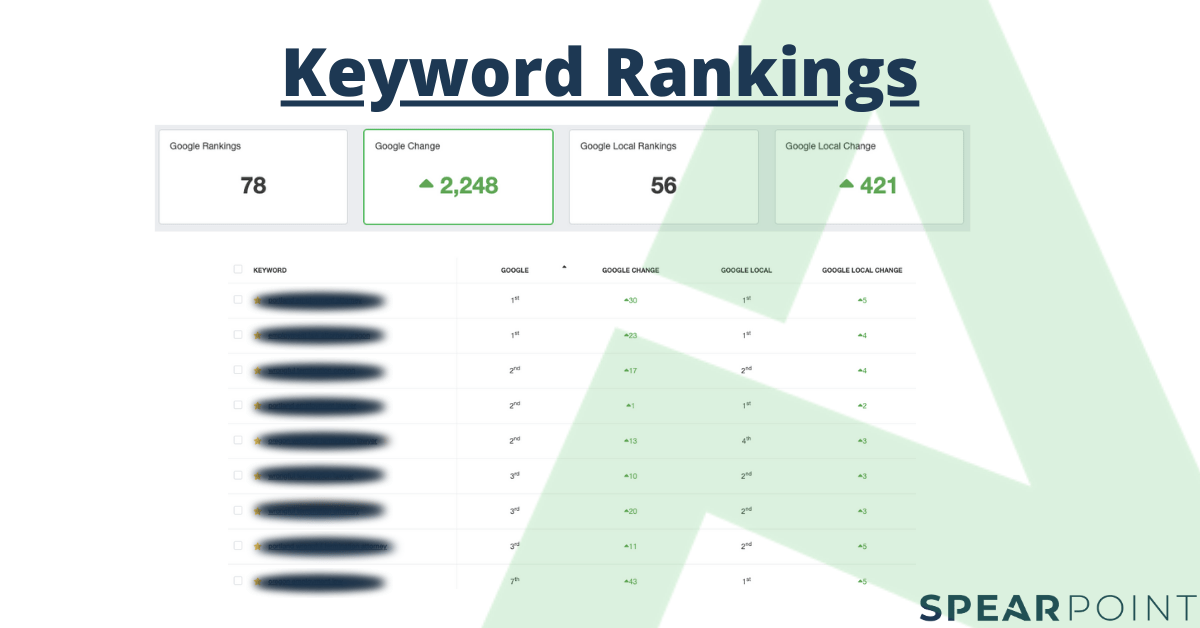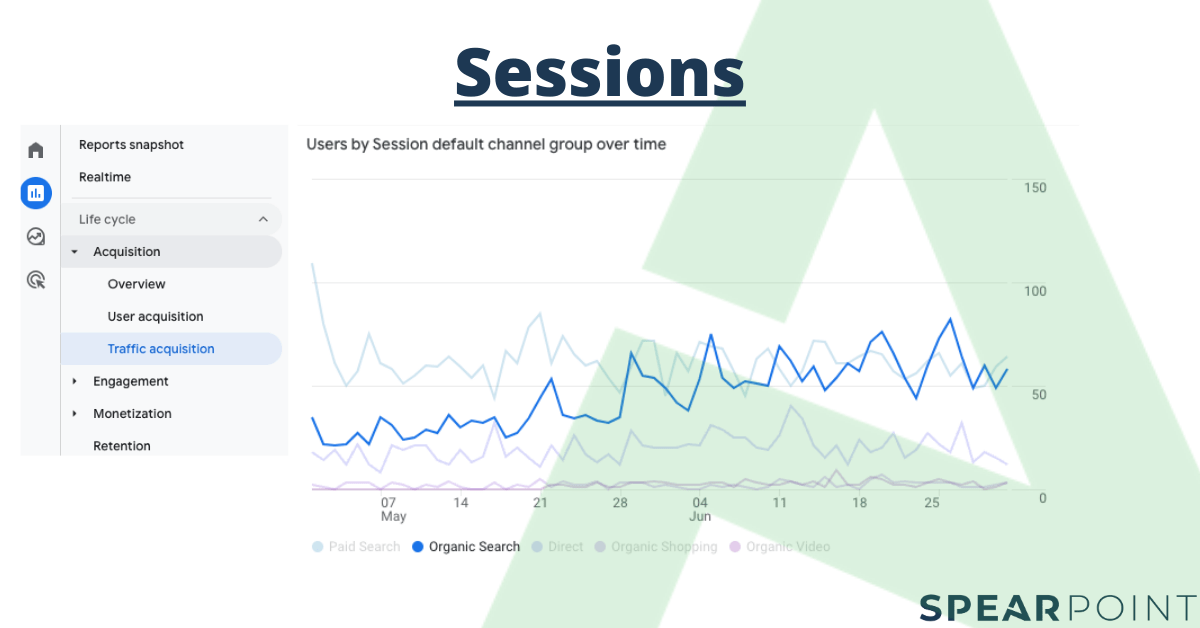Simple DIY SEO Metrics for the Busy Business Owner
Search Engine Optimization (SEO) can seem like an intricate labyrinth of metrics and analytics. But, let me spill a little secret here - it doesn't have to be that daunting! As a business owner wrestling with numerous responsibilities, making sense of crucial SEO metrics is indeed an important task. However, it isn't something you should lose sleep over. In this article, I'll unravel the mystery behind various SEO metrics and show you how simple it truly is!
Also Read:
Want More SEO Tips? Go Here for Free DIY SEO
3 SIMPLE DIY SEO Metrics You Should Know
To ease into our topic and make things less intimidating, we’ll start by exploring these three straightforward yet efficient metrics that need your attention: Impressions on Google Search Console, Keyword Rankings, and Total & Organic Search Sessions fetched via Google Analytics.
Impressions from Google Search Console
1. Impressions - Google Search Console
The first of the SEO measurement metrics we will look at are impressions in the Google Search Console. An impression occurs every time someone sees your website link in a search result, though they might not necessarily click it. This metric is fundamental because higher impressions usually signify greater visibility on search engine result pages (SERP).
Understanding how many eyeballs your content could be commanding is critical towards improving various aspects of digital marketing strategy such as keyword research and content optimization.
Keyword Rankings from a SpearPoint Customer
2. Keyword Rankings
Next up are keyword rankings - another pivotal facet of seo tracking metrics. These denote where exactly does your website stand when users type specific keywords in their searches.
A better ranking typically means appearing on the first page or even among the top five results! And why's this crucial? Because people often don’t scroll past the first few entries when looking for information online. Hence being 'up there' significantly boosts your chances of getting found.
Monitoring seo performance on different keywords helps get insights into what's working best for you or where improvements are needed. It aids you in adjusting your content strategies according to what your audience is actively searching for.
Here are some free keyword ranking tools:
Organic Sessions by Google Analytics (G4)
3. Total & Organic Search Sessions - Google Analytics (G4)
My hat off to you if you've ever wondered, "How can one track seo performance in terms of user engagement on the website?" Hats off because 'Total & Organic Search Sessions' is your answer here!
Sourced from Google Analytics, this metric reveals how many total interactions happened on your site during individual sessions. A session could involve multiple page views, events, social interactions and e-commerce transactions.
An even more interesting subset of this metric is 'Organic Search Sessions', which signifies visits made via unpaid search results. Higher organic sessions indicate that a broad segment of the audience finds your content valuable and engaging enough to interact willingly without being driven by paid promotions. Ergo, achieving stronger organic reach should be viewed as an important SEO goal.
To conclude this section - these three metrics are simple yet immensely powerful; they allow you to gauge visibility, keyword strategy effectiveness and visitor engagement levels respectively. Remember, regular monitoring and adjustments inspired by these insights are key towards enriching your SEO journey!
Stick around as we delve deeper into some advanced metrics in the upcoming sections!
Advanced Metrics for Biz Owners Who Want MORE
Once you've aced the basics, it's time to delve into more advanced SEO metrics. Whether you're thirsty for deeper insights or yearning for better performance tracking, this section will uncover the additional measurements you need.
Google Analytics Sessions and Conversions by SpearPoint Marketing
From Google Analytics
Among various seo measurement tools, Google Analytics is a prime example that offers a multitude of intricate data points.
Conversions
Conversions are a glowing testament to the effectiveness of your SEO efforts. Conversion denotes any desirable action taken by the user on your website—an order placed, a newsletter subscription done, or just an intractable button clicked. It represents making fans out of visitors and realizing goals along your sales funnel. Now I consider “conversions” advanced and not basic because they are not always easy to set up on Google Analytics (G4).
Read: How to set up conversion tracking on G4
Also, a “conversion” can me a lot of different things. If you consider a “conversion” as a “lead”, then creating a form makes sense to track these. However, there might be other ways to become a “lead” on your website. Example: an email or phone number. All, this makes it more complicating.
Here are some examples of website “conversions” using Google Analytics:
Lead forms
Free trials
Sales (product, ecommerce, service)
Email or newsletter subscribe
Gated content forms (e-books, pdfs)
Registrants (event, webinar)
Sessions vs Users: Unveiling Unique Visitors and Repeat Traffic
You'll be dealing with the term 'sessions' quite often while observing seo performance metrics in Google Analytics. A session record is initiated when a user arrives at your site and terminated after 30 minutes of inactivity. However, 'Users' tracks unique individuals visiting your site within a specific period, regardless of how many sessions they instigate.
Navigating these two seo metrics can give you insights into repeat traffic versus new audience discovery—a vital strategy pivot point for businesses scaling up their online presence.
Top Page Views
Observe top page views on Google Analytics for an understanding not only about which components are faring well but also what topics interest your audiences most. By revealing pages garnering maximum eyeballs, this important seo metric serves as an indispensable strategic guidepost.
Google Search Console Data by SpearPoint Marketing
Google Search Console
Google Search Console caters to comprehensive SEO tracking needs in its unique way.
Clicks
Reflecting the number of times users actually clicked through to your website from search results, 'clicks' hold immense importance in measuring seo success. It's not just about visibility; engagement matters too!
CTR
Click-Through Rate (CTR) shows you what portion of viewers were fascinated enough by your listing that they decided to click through. A higher CTR generally implies effective meta descriptions or well-positioned search rankings enticing lots of organic traffic.
Google Business Profile data by SpearPoint Marketing
Google Business Profile Data
On a platform containing myriad local businesses jostling for attention, it's critical you are aware of your standing by constantly monitoring your profile data.
Impressions
Broadly similar to Search Console impressions but specifically linked with Google Business Profile listing views instead—providing valuable insights into local search performance.
Interactions - Calls, Directions, Website Clicks
Bitcoin once said "In God we trust. All others must bring data." This applies in spades as this SEO metric accounts for every interaction generated via Google My Business—each call made, each direction chased, and every time someone lands on your website informed by that visit—a tangible proof that SEO metrics aren't vague parameters but direct business-drivers!
Reviews
Reviews constitute the greatest showman in town when it comes to local SEO. They etch an emotional connection with potential visitors before they even interact with your online presence.
Backlinks from Majestic by SpearPoint Marketing
Backlinks
Being one among several potent backlink intelligence providers out there Majestic contributes its part towards making important seo decisions.
Total Backlinks
The total number of backlinks—other websites linking back to yours, can be immensely advantageous further bearing on the effectiveness of your seo strategies.
Referring Domains
While volumes matter in the blogging KPI of 'total backlinks', it's essential that these links are emanating from high-quality referring domains. Being linked by a reputed domain resonates with quality and trustworthiness that no other metric does.
Trust Flow And Citation Flow
Majestic curates two unique metrics: trust flow (the quality measure) & citation flow (quantity aspect)—essential pointers to grade your website as per its SEO reputation among the Internet fraternity.
These advanced SEO measurements nurture your decision-making power with sophisticated data dynamism; making every effort count, every insight worthwhile!
Want more from SpearPoint Marketing? See our Case Studies.
Conclusion
We have bridged quite a journey from understanding what SEO is and the importance of metrics in it, to learning how to use specific tools for tracking your SEO performance. In essence, impressions, keyword rankings, total & organic search sessions help create a balanced approach towards your business's online visibility.
Executing an effective SEO strategy is no small feat. It requires vigilance for regular seo monitoring, patience as results take time to materialize and unerring consistency. From using Google Search Console and Google Analytics to measure seo metrics such as sessions vs users, top page views or conversions these invaluable tools make tracking effortless.
But the work doesn't end at simply tracking the performance with these seo measurement metrics. What matters equally is interpreting that data coherently - seeing those correlations which aren't overly apparent yet significantly influential. For instance, total backlinks or referring domains seen through Majestic could be directly influencing your trust flow or citation flow metrics.
Let's not forget about the advances in local SEO either. With the right attention given to Google Business Profile Data, impressions can convert into valuable interactions - calls, directions requests, website clicks – ultimately leading towards profitable customer funneling.
At last but not least transparency around important seo KPIs would allow you to validate what’s working and adjust what isn’t; enabling you to optimize future efforts and gain incremental improvements in achieving your digital goals.
Hopefully this walkthrough on simple DIY SEO Metrics has been elucidating for the busy business owner like yourself. So here's a toast to steady growth ahead for all those who are diligent participants rather than passive observers when it comes to managing their online presence!











